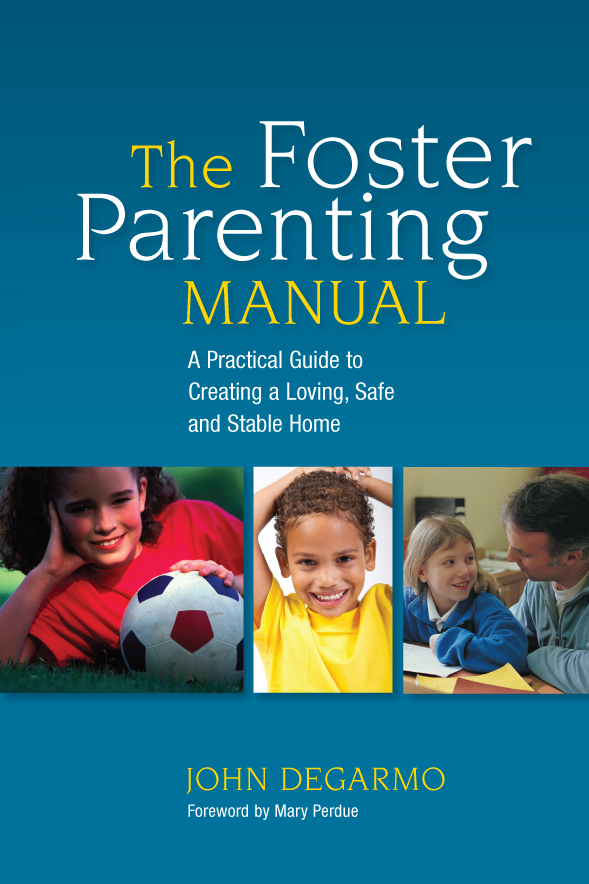
.A few months back, my family grew once again with a child in need. This time, it was a 17 year old boy; one who had suffered tremendous neglect and even abuse from his biological mother over the course of a number of years. Furthermore, he was homeless when he came to us, as his mother had abandoned him one year earlier.
Oh, yes! You can imagine that it has been....shall we say....a little challenging? Having a 17 year old young man join a family can be adventuresome, if you will. At the moment, we currently have 9 in our home, and each is adjusting to the latest family member. Has it always been easy? In one word, no. Yet, we are finding our way, and each day brings better understanding for all in the home.
Each stage of development can be difficult for a foster parent, but perhaps the teen years are the most challenging. This is an age where teenagers try to find their own identity, and is often a time where teens try to “cut the apron strings,” so to speak, in an attempt to gain self independence. If he has been in the foster care system for some time, he will have more than likely moved from placement to placement. Years of anger, frustration, sadness, loneliness, and broken trust will be difficult to break. You will have to have great patience with your foster teen, as he struggles with conflicting emotions as well as his role and place within your family.
Trust is one issue he will have a very difficult time with. Whether this is his first placement, coming directly from his birth parent’s house, or has had multiple placements, he may feel that the adults in his life have betrayed him. He has lost everything he knows and loves, and is now in a strange home with people who are not his parents. He will build up walls around himself, in an attempt to safe guard his feelings. You will likely have a hard time breaking through these walls, and trust will be difficult to establish, as he believes that he has no reason to place trust in you. Lies and mistruths are often common with foster teens, and you will have a difficult time knowing when he is sincere, and when he is misleading you.
Join the thousands who receive Dr. John's FREE Foster Care Newsletter. Sign up below!
As a result of being removed from his home, he may have anger towards adults, and express that anger towards you. He may challenge your rules and expectations within your home, and argue with you about them, resenting the fact that he is being forced to live with people he does not know. Your foster teen may try to breaks as many of your rules, and make your life as miserable as possible, in the hope of you asking that he be removed from your home, believing that he will be returned to his biological family members. He may also seem highly withdrawn and depressed, and may not wish to be included in any of your family activities, along with any sort of social interaction. He may not appreciate all you do for him, and will seldom thank you for meeting his needs, providing for him, and showing him kindness and love. As he has been placed into your home against his will, he may runaway.
As his body continues to change physically, he will become self absorbed. Hormonally, he will continue to develop, and his body will soon grow as he advances towards adulthood. Peer acceptance will be important to him, and he will seek to try and fit in with his fellow students. If he has moved often due to multiple placements, his school records may not be complete, and he may struggle in school. Learning disabilities may place him in a grade lower than other students in school, causing anxiety and embarrassment on his behalf. Behavior in school may also be challenging, as he lashes out in anger towards teachers and those in authority within the school.
Perhaps the most important step you can take in helping your foster teen is building trust with him. This will take time, and you will have to have patience; do not expect him to come to your home trusting all you say and do. Give him space and allow him time to learn to trust you. Do not make promises to him that you are sure you are unable to keep. Once a promise is broken by you, it gives him further evidence that he cannot trust you. Talk to him on a personal level; find out what his interests are and encourage him to pursue those. Show interest in him, as well as in his biological family. Help him enroll in after school clubs and activities. Help him to research possible careers for him when he graduates from high school, and inform him that dropping out of high school will have severe negative consequences for him. Encourage him to express his feelings and emotions to you, as well as to a counselor, if necessary. He will need to learn that expressing his feelings is natural and healthy instead of keeping them inside.
Establish rules and consequences for your household as soon as possible. Assign him chores and responsibilities in your house, allowing him to feel part of the family as well as give him a sense of importance and self worth. As he will want to establish a sense of identity and independence from you and your family, allow him to be a teenager; give him permission to try and fit in with the other students at his school with clothing styles, as long as they are appropriate. Set up a homework station for him at home, perhaps at the kitchen table, and create a time where he is to attend to his homework each night, perhaps when he gets home, or after dinner. Let him know that you will help him with his homework as much as you are able to do so. Do not allow him to have computer technology in his room, alone and unsupervised.
No matter the age or ability of your foster child, he needs you. When you take a foster child into your home, you are making a commitment to “foster” that child. Remember, “foster” means to take care of, to help grow, and help develop another person. Your foster child may not express gratitude, return love, or show appreciation for what you are trying to do, but it is important to keep in mind that you are making a difference, a difference that could indeed last a life time.
-Dr. John
For much more, get your signed copy of The Foster Parenting Manual



 RSS Feed
RSS Feed